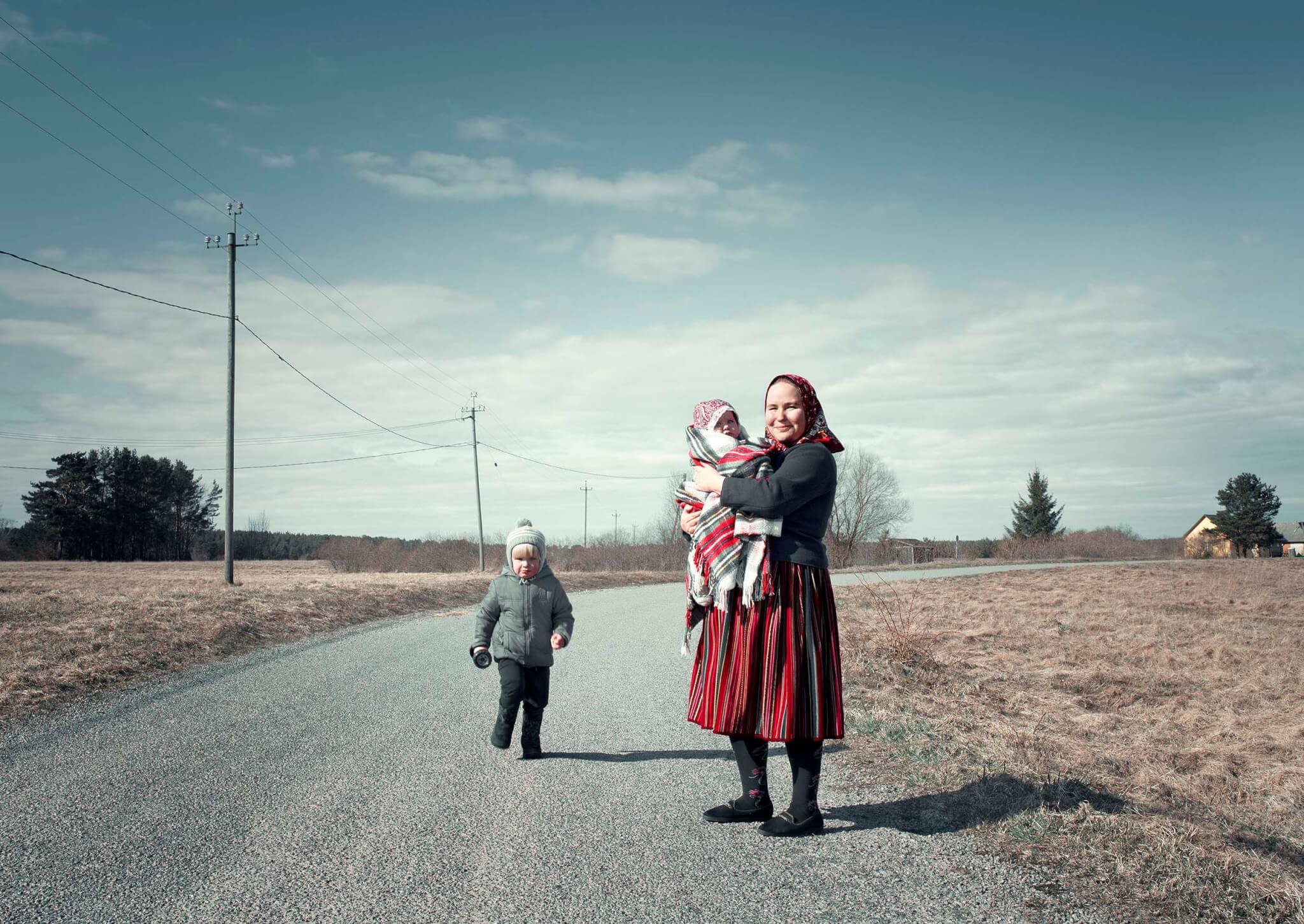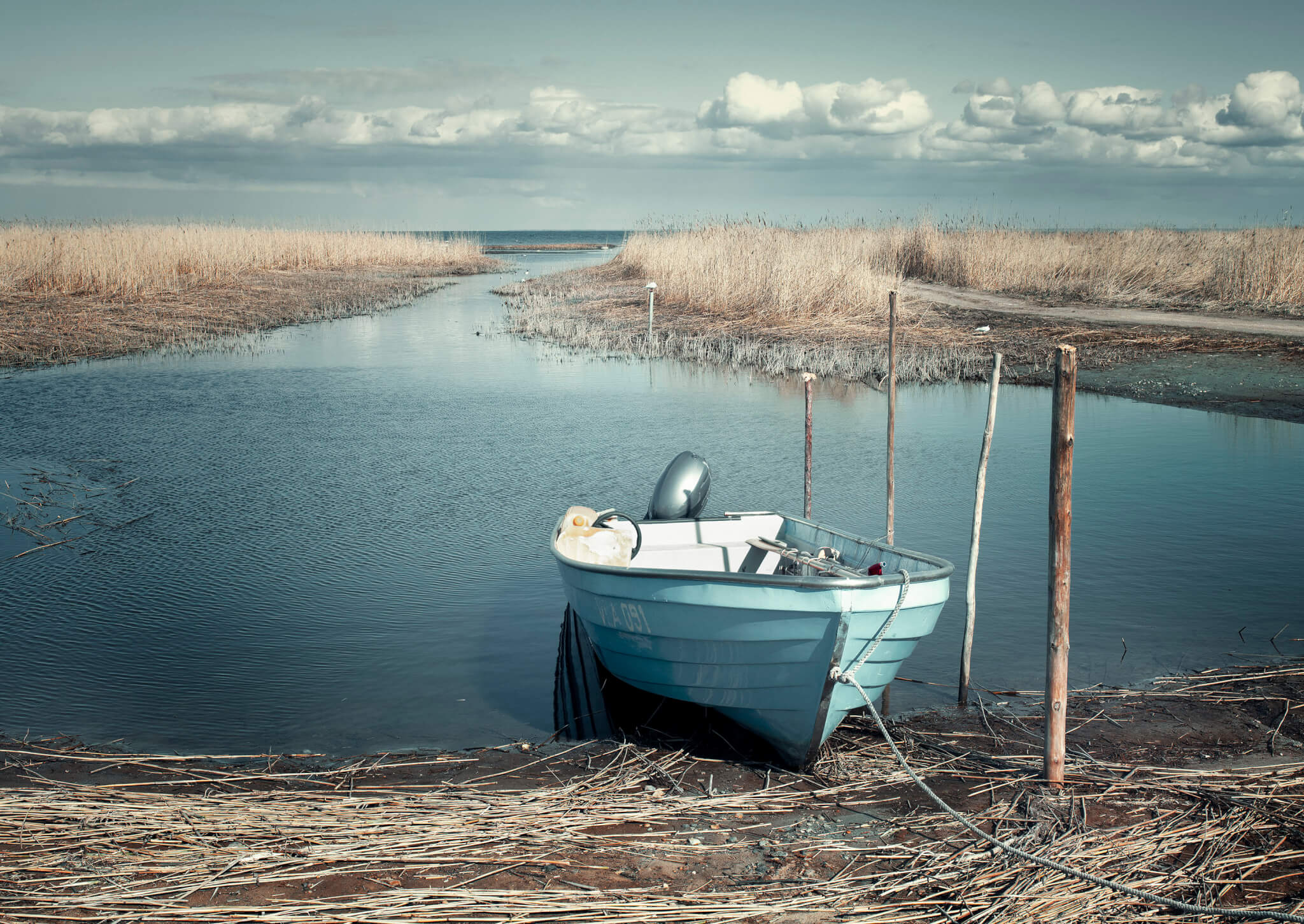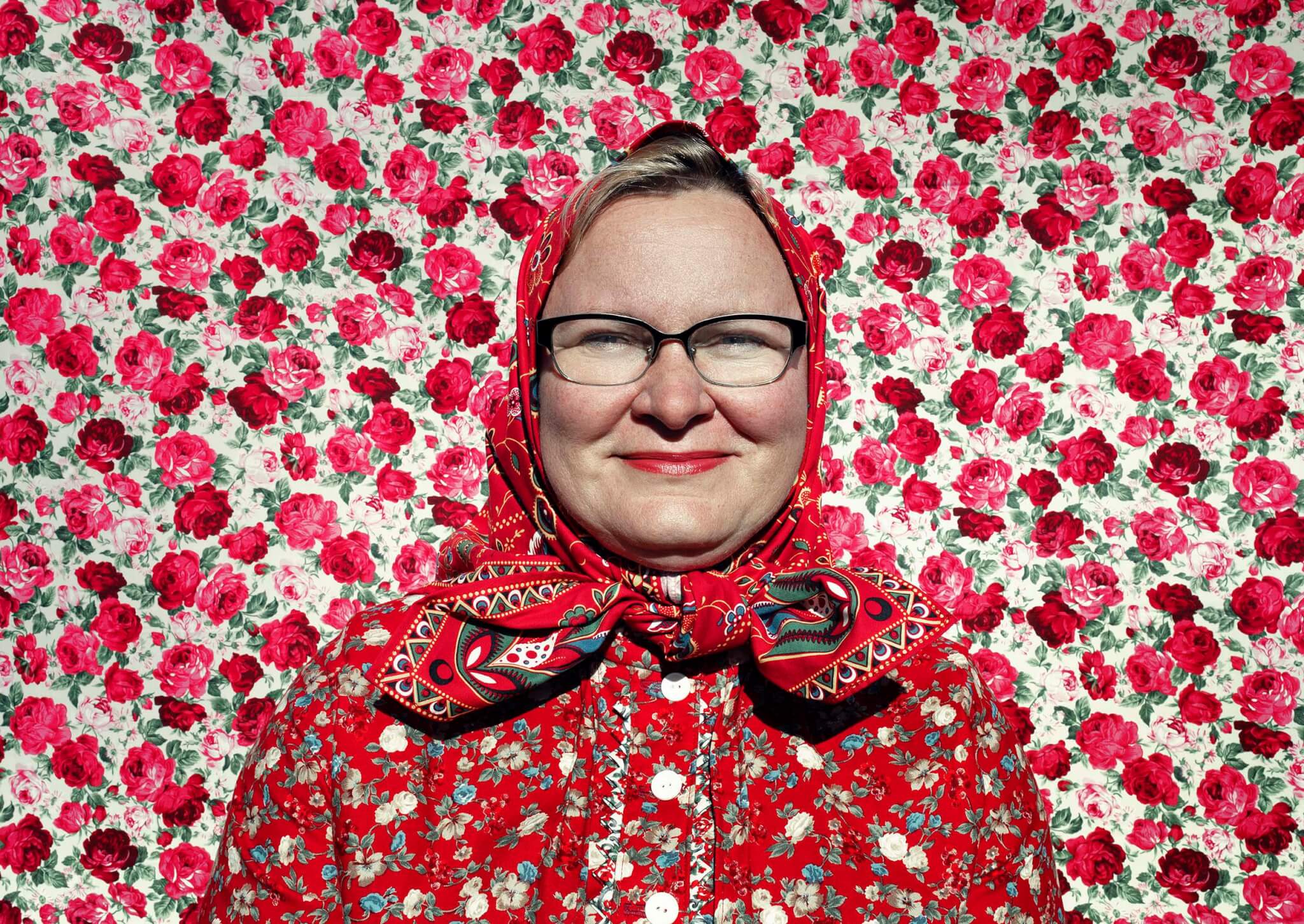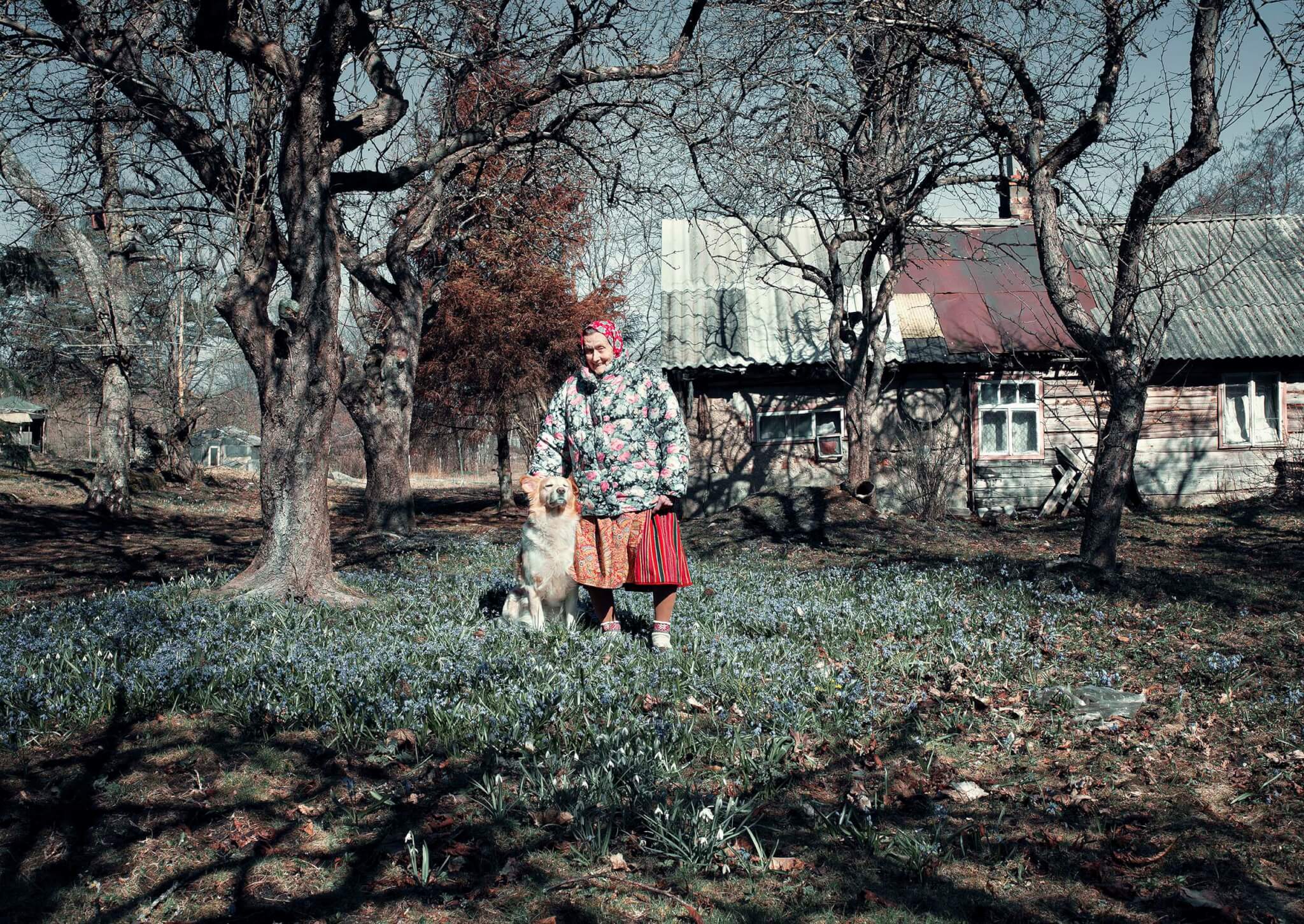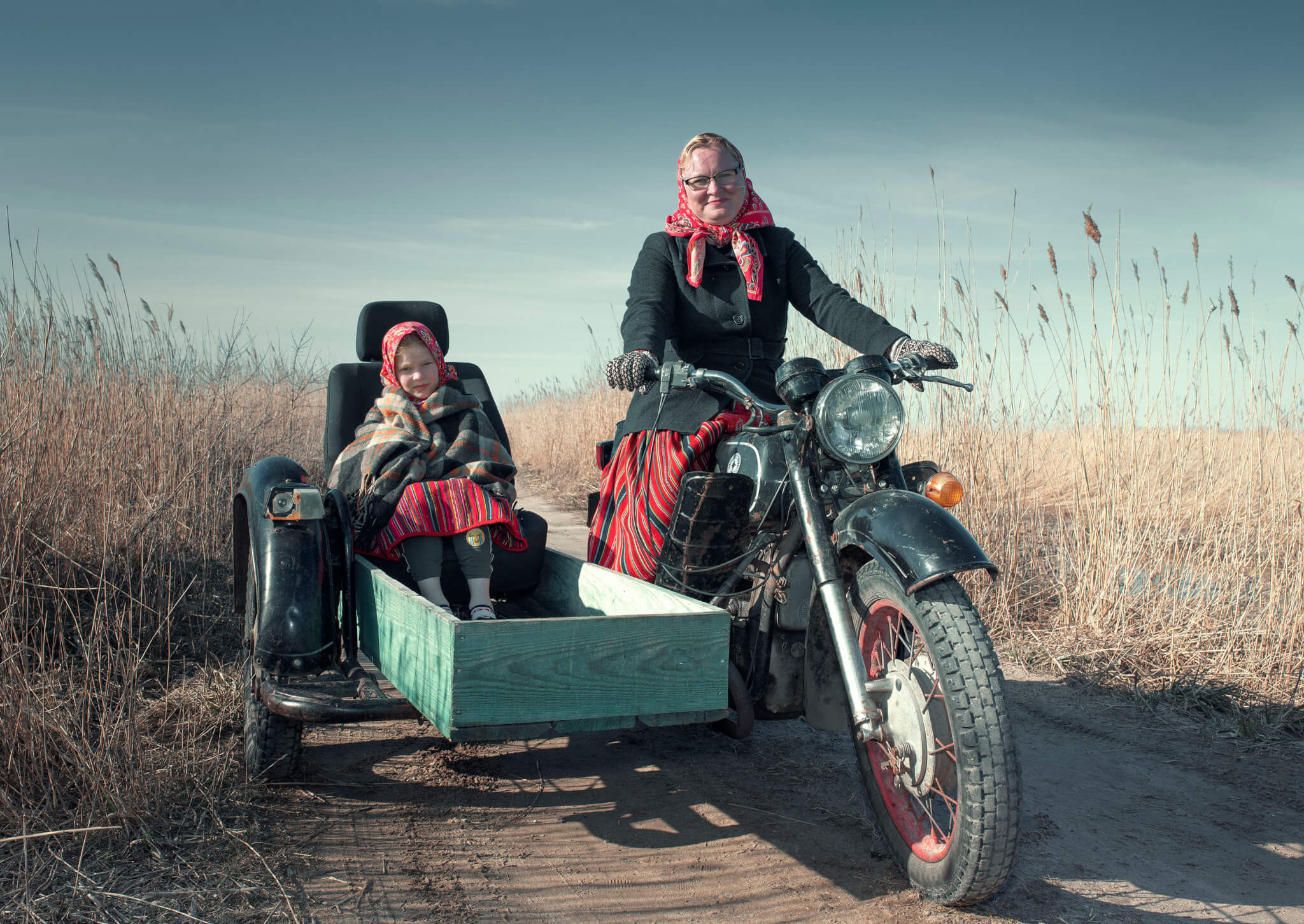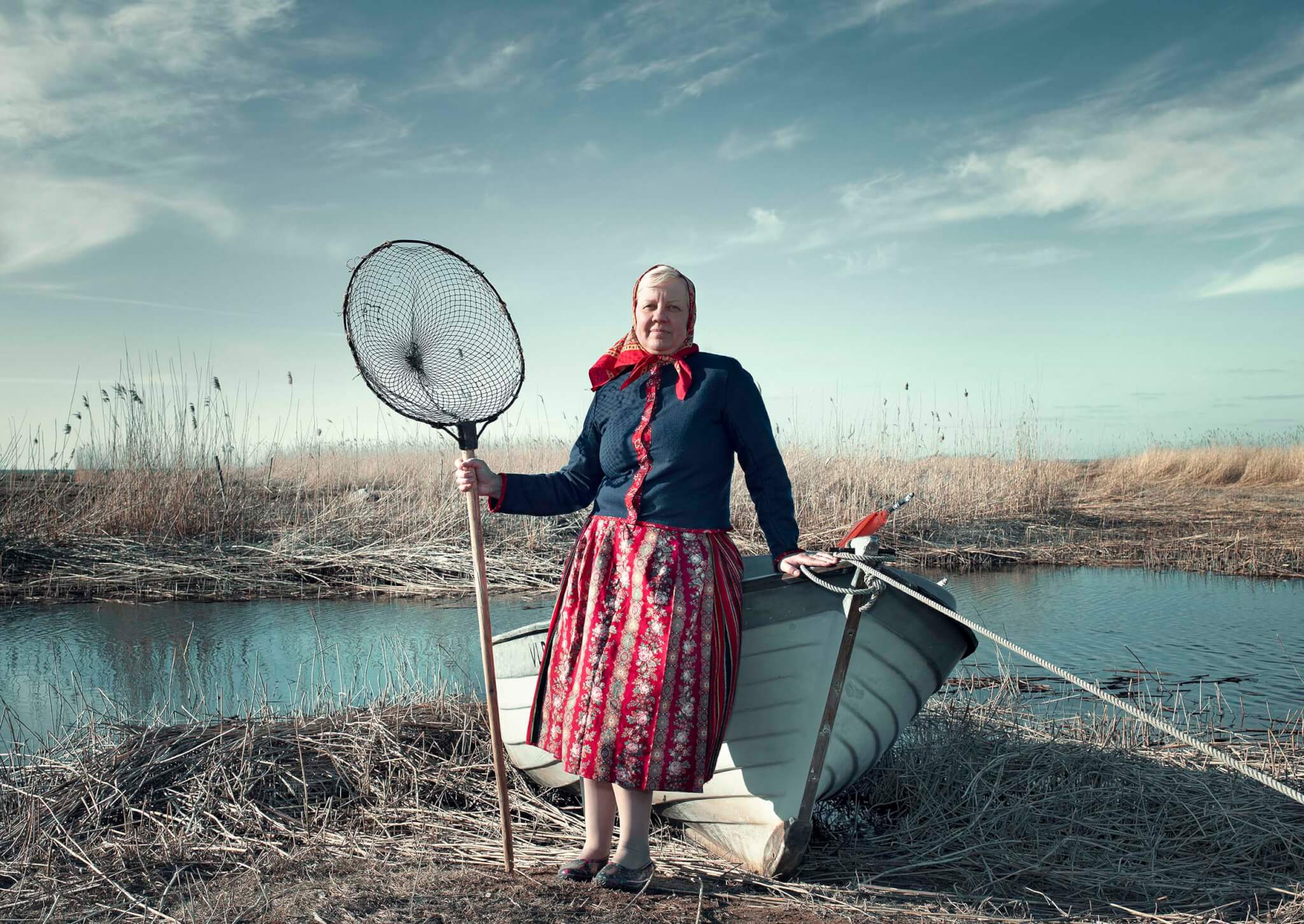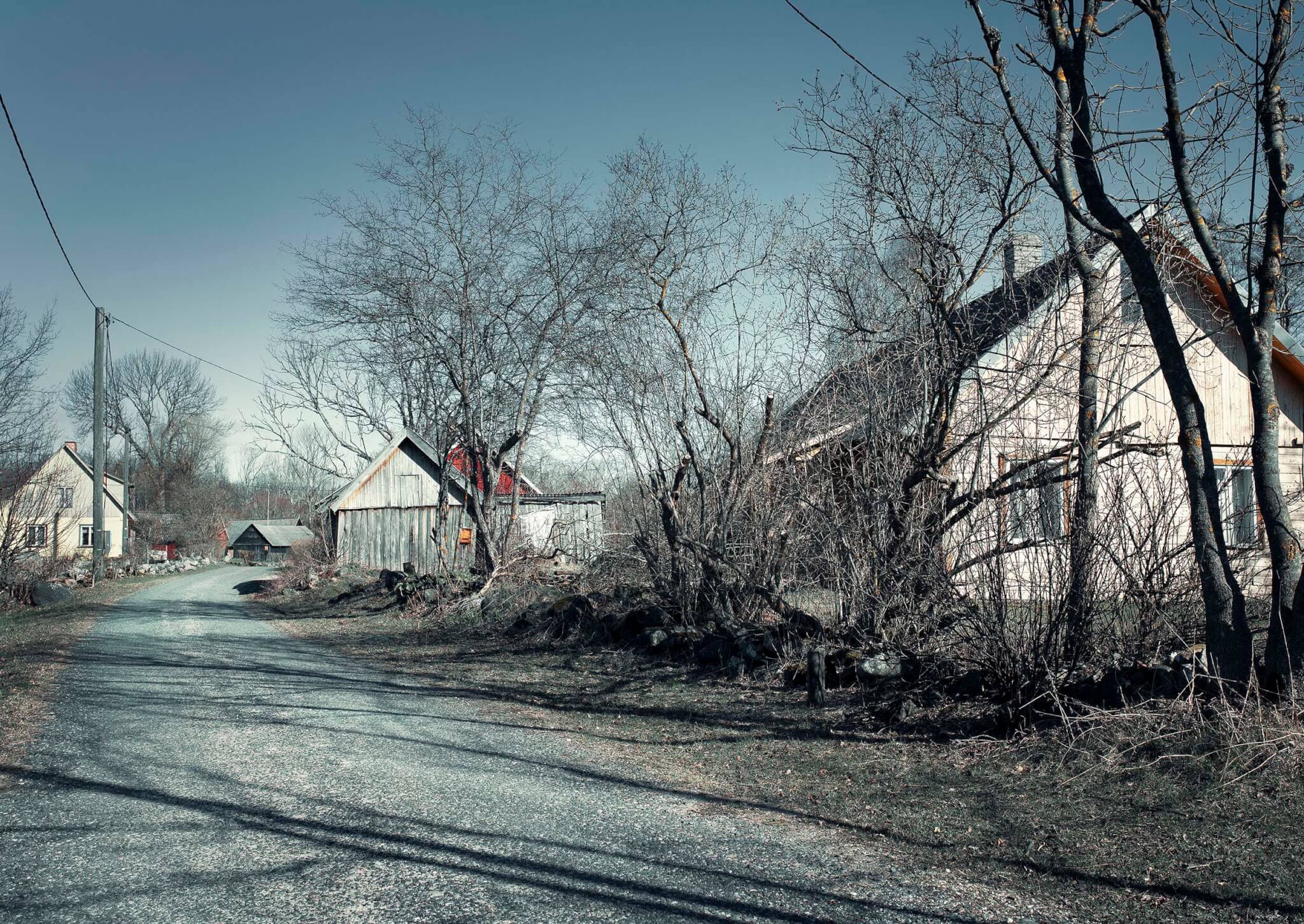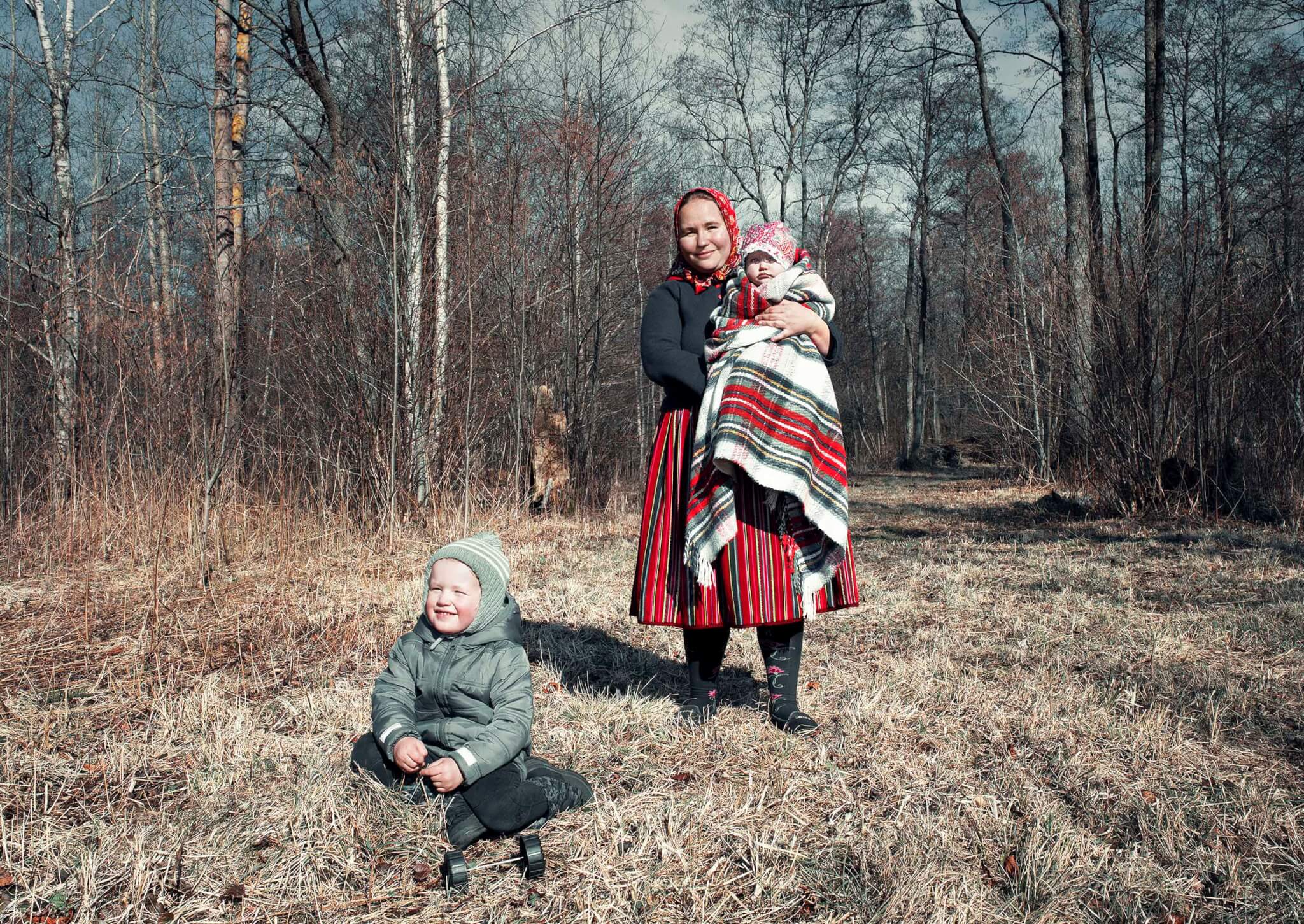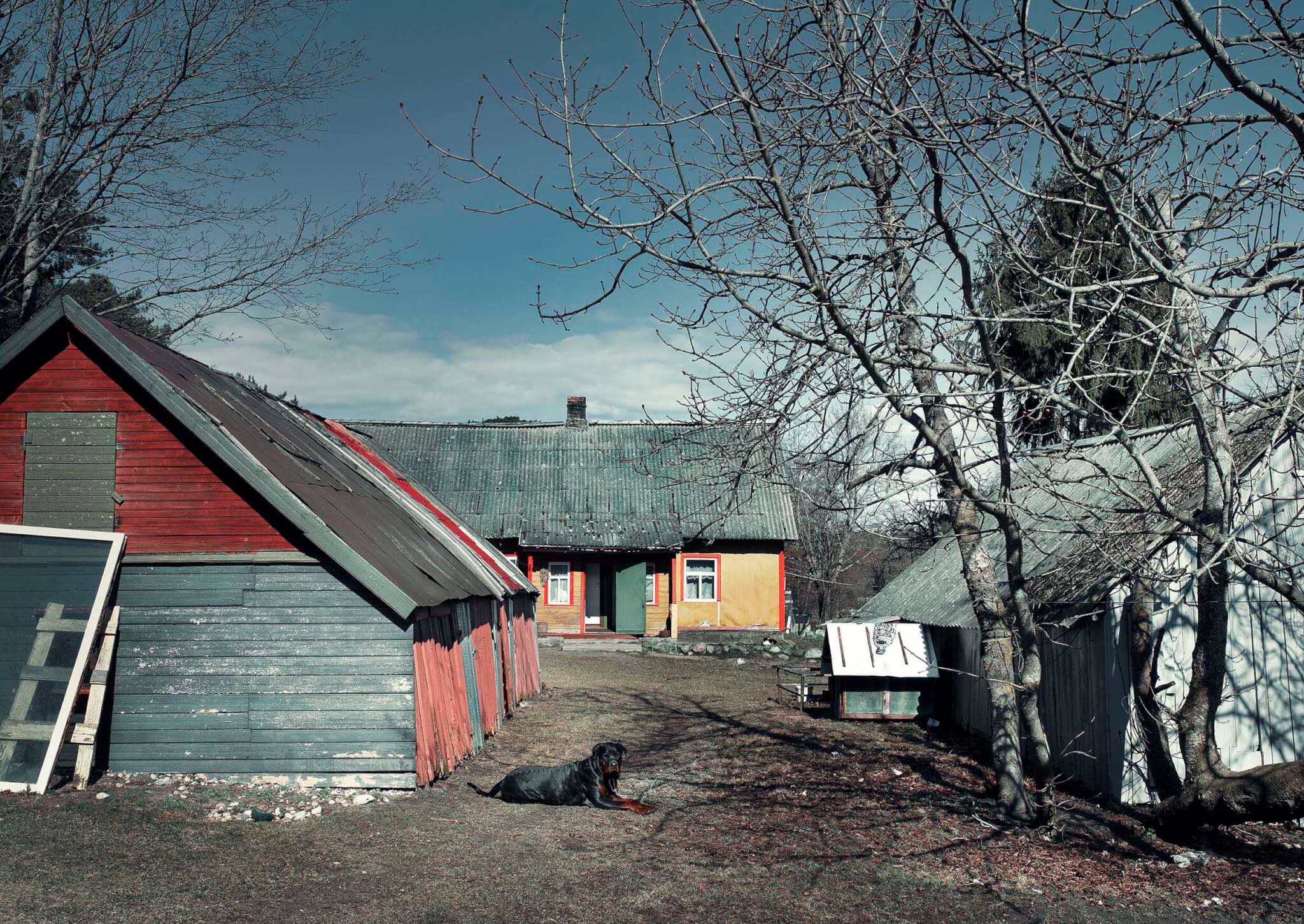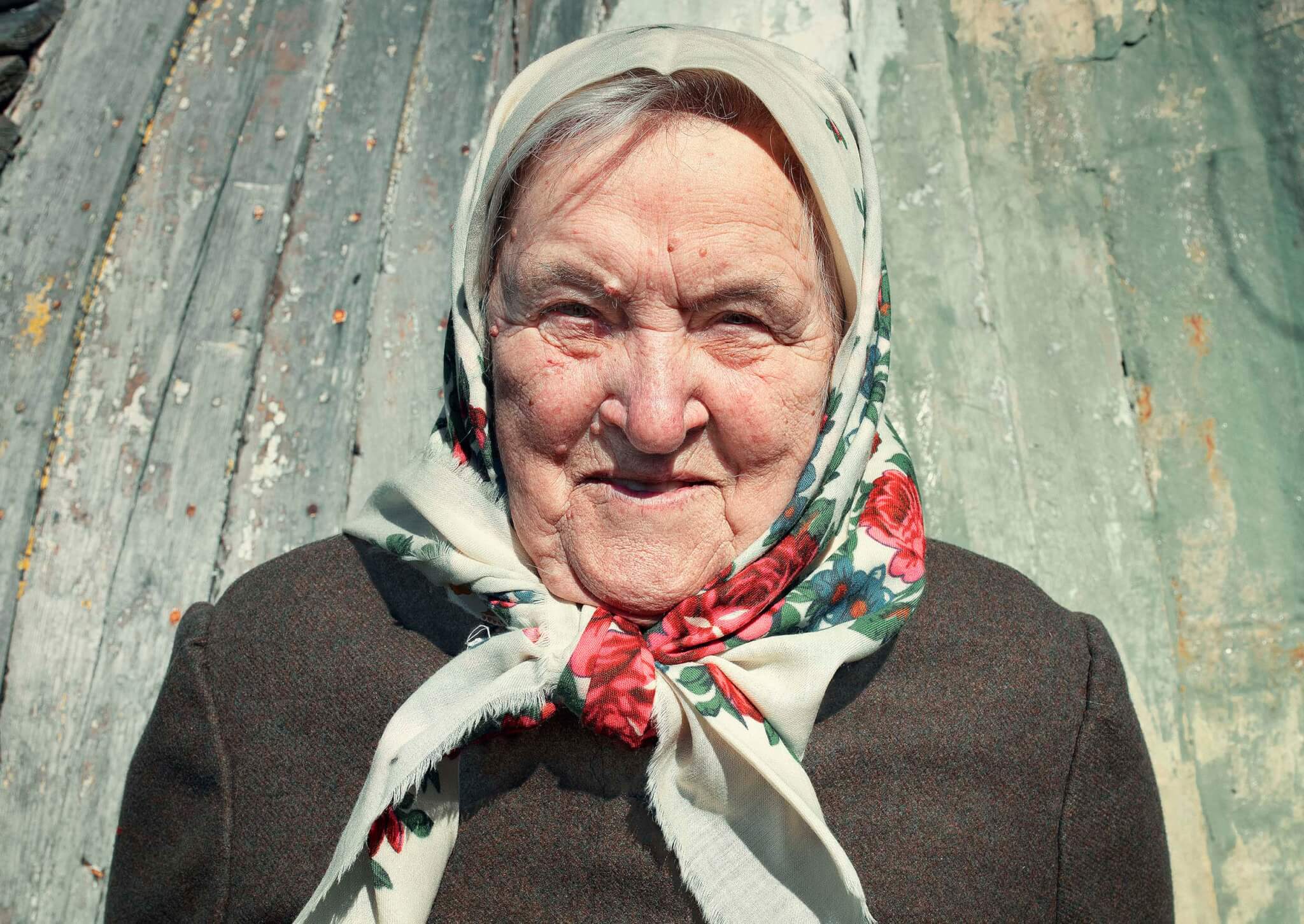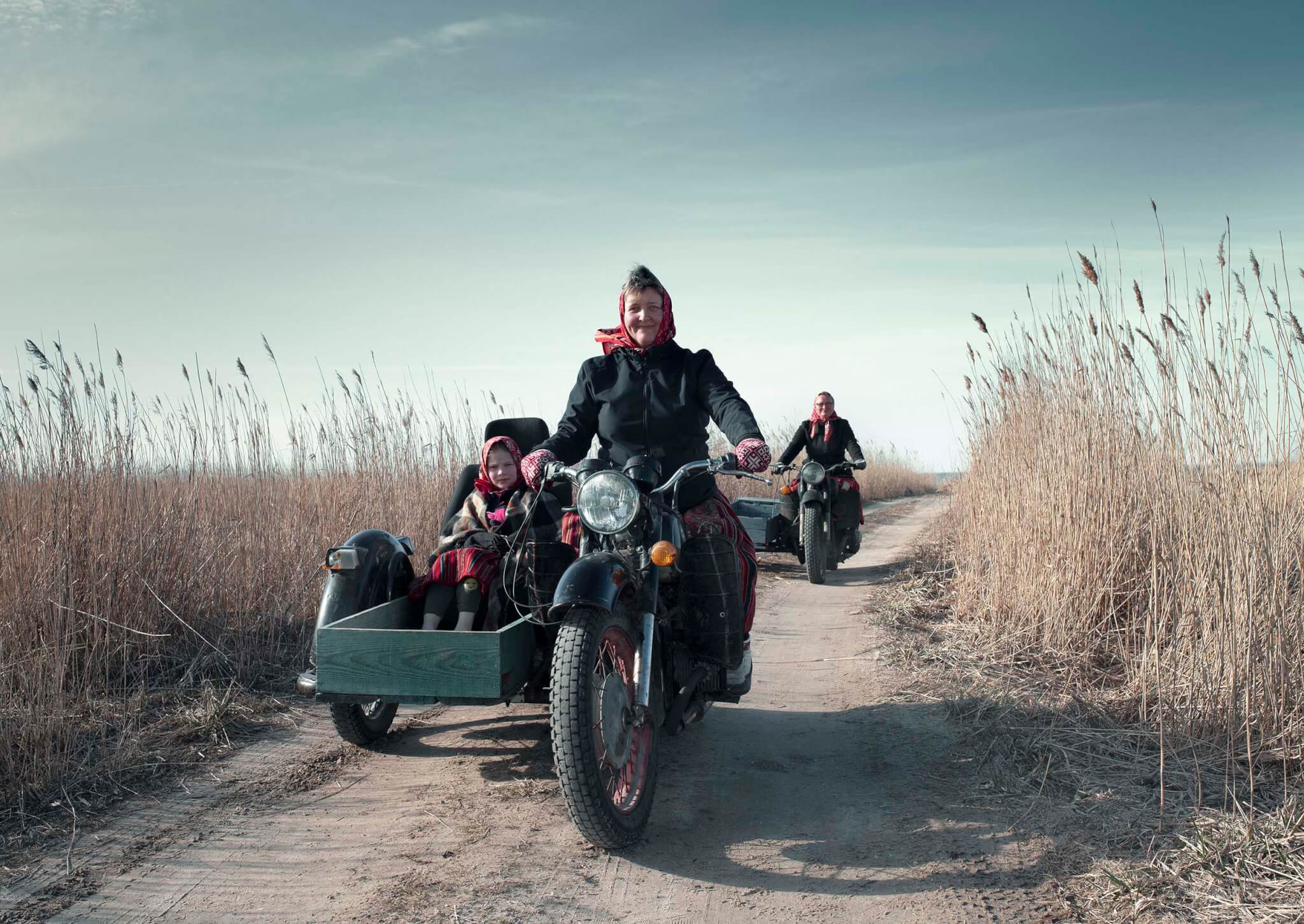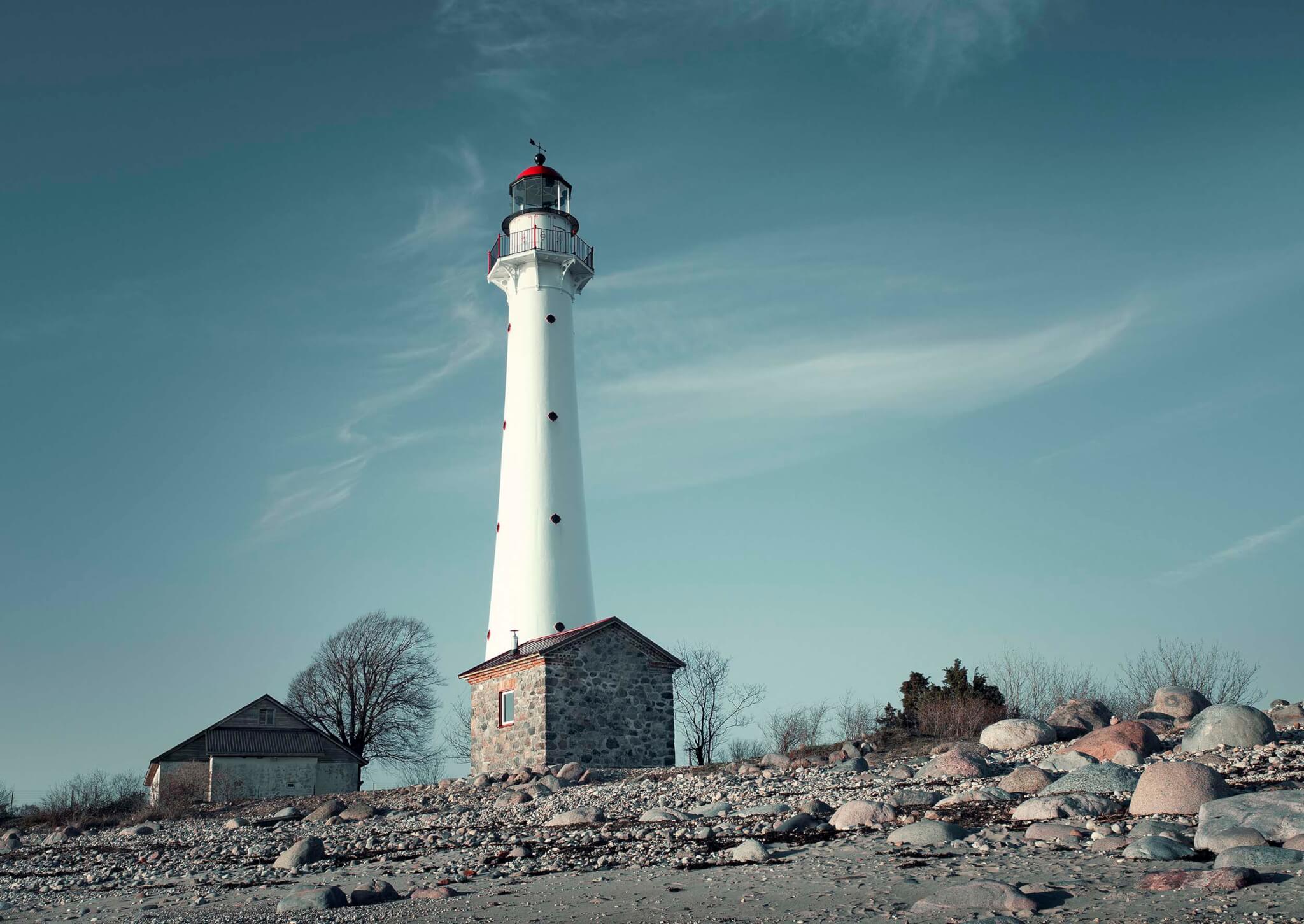The fact that we travel to Kihnu, a three-hour drive and an hour’s boat ride from Riga, is the result of persistent myth formation. “Women’s island” is the nickname of Kihnu. “The last matriarchate,” Google lapses. Nobody mentions men. They stay invisible in the wings of women’s lives. An island with only women. That can not be true. It is not true either.
Red. In all its shades. It is the color of the women of Kihnu. Symbol for youthfulness, for happiness and recklessness. At the time it defied the austerity of the Soviet regime, the mockery of the gray of the sea and the long Estonian winters.
We arrive by boat one evening in the spring when the days are longer. From the horizon, the sun throws a final kiss over the water and then slowly sinks back into the Gulf of Riga. A motorbike with a sidecar awaits her cargo at the quay.
Little has changed since the sixties, when the motorbikes were introduced, on the Estonian island when the ferry moors. Everywhere women walk in red striped skirts. They also wear the floral headscarves. Only the old engines made way for cars. Tatty rattles with a local license plate, only intended to tear over 16 km² of island.
Images: Nicole Franken – Text: Anneke de Bundel

